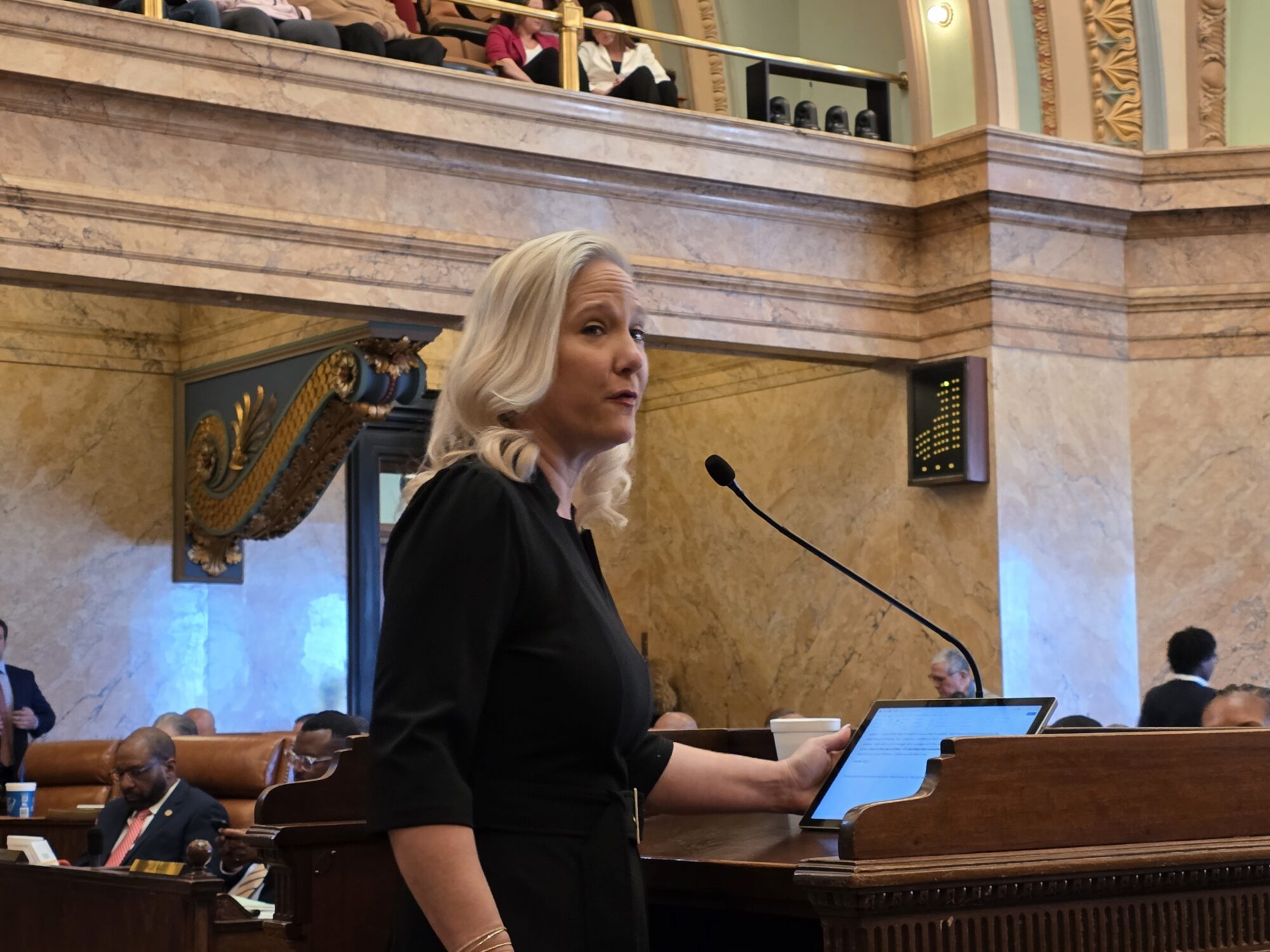Senator Chris McDaniel News Release
For Immediate Release
February 25, 2010
PRESS RELEASE
As part of a family of educators, I believe education must remain a top priority and have maintained a record replete with continuous support of education and teachers. But, last week — with a single vote to send Senate Bill 2688 to conference — I was inexplicably cast by a few as an enemy of children and of education. I suppose I’ve learned to expect it; such is the nature of partisan politics.
Nevertheless, the reaction was perplexing; no matter how thick the battle-scarred skin of a politician eventually becomes, it’s always troubling to be criticized by those one has consistently admired and defended. With that said, let’s examine the facts surrounding SB 2688.
The bill purports to restore $67 million to the budget cuts that the Governor has been forced to make because of the economic downturn, but it’s an irresponsible piece of legislation. Though we all desire immediate restorations, our eagerness must be tempered with dutiful consideration of the future.
In its current form, as perverted by House amendments, SB 2688 is a flawed bill that dips too deeply into reserves we will require for years to come.
Even worse, it would also effectively reduce funding for Community and Junior Colleges. With Jones County Junior College representing an indispensable part of our community, the legislature must find ways to adequately fund the institution. If not, JCJC could suffer significant tuition increases in addition to staff reductions. In an effort to assist Community and Junior Colleges, the Governor agreed to earmark $19.6 million of his discretionary funds to restore part of their cuts. But the passage of SB 2688 would force the Governor to reallocate his earmark to another department.
Ignoring pleas from the Commissioner of Corrections, SB 2688 only appropriated corrections a miserly $1 Million for restorations. The commissioner had previously warned that without additional restorations, corrections will be forced to release thousands of prisoners, resulting in a clear threat to public safety.
Since corrections has already been cut $29.5 million during FY10, the passage of SB 2688 would result in the Governor spending $19.6 million of his discretionary funds currently earmarked for Community and Junior Colleges on the Department of Corrections. Sadly, the bill does not adequately fund community colleges or corrections, and its practical application would potentially harm one of our region’s most important institutions. Moreover, spending a large percentage of the Governor’s discretionary money on corrections in this fiscal year alone is both short-sighted and fiscally reckless.
Furthermore, our budgetary crises is in its infancy; so reserves must be spent wisely. For FY10, the projected General Fund shortfall is $458.5 million. Loss of federal stimulus money and expected unavoidable increases will result in a $795 million structural shortfall in FY11 and a $1.3 billion structural shortfall in FY12. A responsible use of the Health Care Trust Fund will therefore be required to support declining state revenues for up to four years.
There is $218 million currently in the Health Care Trust Fund. Accounting for earnings and interest, the $58 million figure suggested by the Governor will allow it to be spent in FY10, FY11, FY12, and FY13; thereby cushioning our economic downfall. But if the Senate adopts the reckless House plan by spending almost $70 million for what remains of FY10, the fund will be depleted far too quickly, leaving us without reserves for future lean years. Regarding other reserves, one-third of the rainy day fund ($115 million) has already been spent in FY10.
Responsible long-term planning is necessary, since revenue shortfalls will continue in FY11, FY12 and beyond. The non-partisan National Governor’s Association told Congress last year that the states’ fiscal picture will continue to deteriorate over the next two years. Studies on past recessions also indicate that the future will be bleak. According to a joint report of the NGA and the National Association of State Budget Officers, state revenue will not return to FY08 levels until 2014 or 2015.
Spending down our financial reserves in less than four years amounts to feasting today knowing we will starve tomorrow. For example, every dollar SB 2688 dedicates to FY10 (which ends June 30) would come directly out of the FY11 appropriation. If we do not carefully utilize reserves, cuts would be potentially devastating in subsequent years.
Lastly, SB 2688 is not the sole vehicle by which education restorations may be realized. Another bill, SB2495 is already in conference and could be used for restoration efforts. If the House was committed to more than playing political games, they should proceed to conference on SB 2495, instead of using SB2688 as a vehicle for reckless raids on much-needed reserves and an eventual justification for future tax increases.
My vote was not a vote against funding education. Instead, it was simply one that would allow for additional negotiations in a conference committee. In conference, three members of the Senate will meet with three members of the House to fashion a workable compromise for restoring funding to struggling state agencies. Not only is conference a more efficient approach, it remains the best option for a reasonable restoration to the 2010 budget.
Scarred but undeterred, I will continue my quest to properly fund public education, as well as my fight to protect our taxpayers.
But SB 2688 must be repaired before it becomes law.







